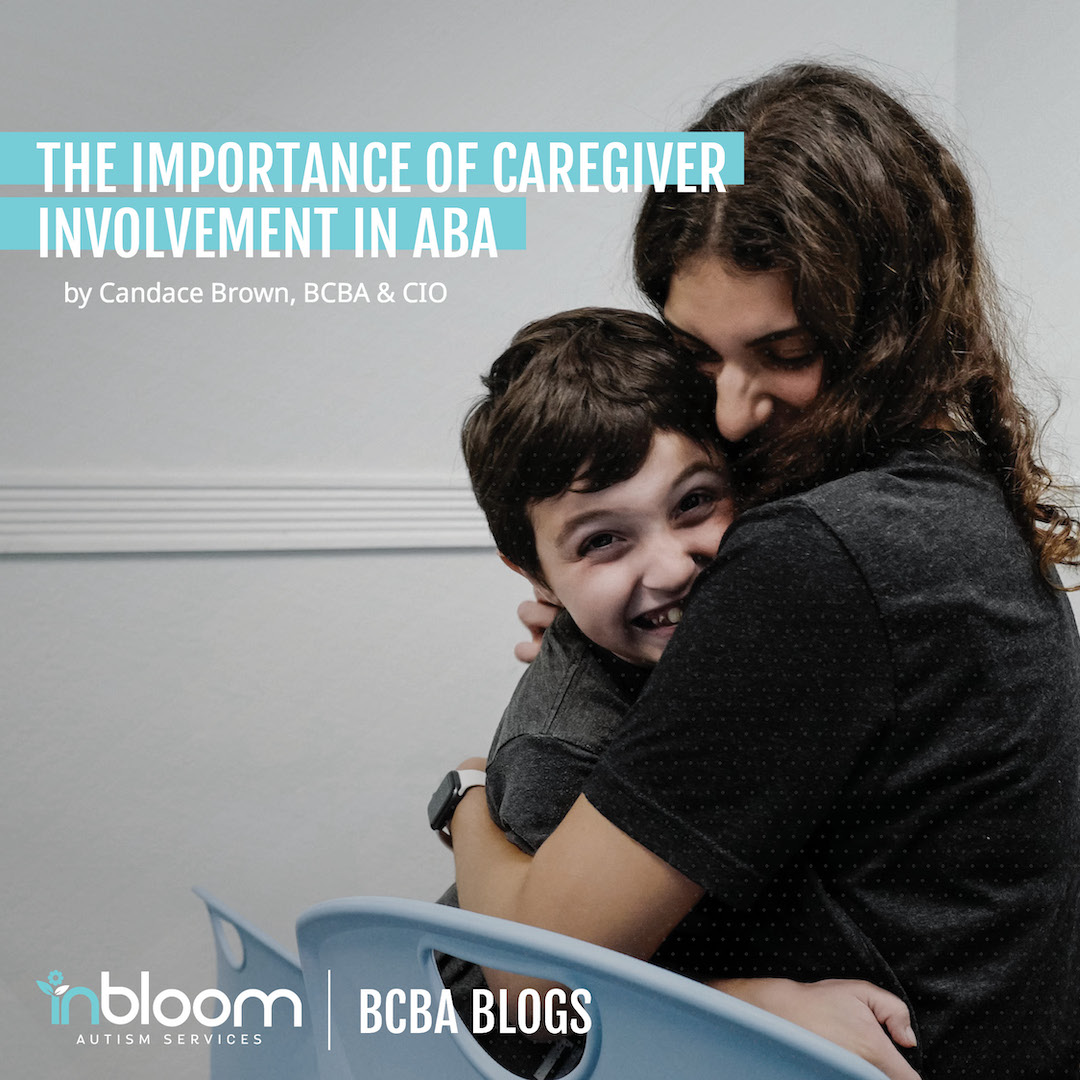The Importance of Caregiver Involvement in ABA

Welcome to your ABA journey! We are excited that you have just begun ABA services for your child or are maybe just researching what ABA is all about. Either way, we hope this post gives you more knowledge on the aspect of caregiver involvement within your child’s ABA services.
What’s in a Name?
It is important to start off by explaining why we use the term caregiver instead of just calling it parent training, even though parents are primarily involved. Everyone’s culture and lifestyle are different, and even the location of services makes a difference when considering who is a key player in a child’s day to day and who would benefit from participating in caregiver training. If grandparents or nannies are heavily involved, we would also want their regular participation. Some children receive services in school where we would want teachers or paraprofessionals to be involved as well. We want to make sure all of the people, who have direct involvement in your child’s care, are part of the ABA team!
There will be an assessment to determine how many hours of ABA therapy will be prescribed, based on the skills and behaviors observed.
Getting Started
When you and your child first get started with an ABA company or Board Certified Behavior Analyst (BCBA), there will be an assessment to determine how many hours of ABA therapy will be prescribed, based on the skills and behaviors observed. We won’t dive into specifics here of what an assessment entails but, no matter how many hours per week your child is prescribed of ABA therapy, the BCBA will always be requesting caregiver training hours. The amount of caregiver training hours recommended can depend on a variety of factors but, for families who are brand new to ABA, we recommend at least one meeting per week with the caregivers.
Next, it is important to understand WHY we want you, the caregiver, to participate regularly in your child’s ABA. Your child may spend upwards of 30+ hours per week in direct therapy, depending on what is prescribed following the assessment, but there are 168 hours in a week. During all of the hours, the child is not with us in therapy, he/she is with parents or other caregivers. With that being said, we want to make sure that what is being taught or worked on in the therapy sessions, is also being implemented in the child’s other environments with the caregivers.
Your child’s regular attendance and participation in ABA help establish a routine.
Why Consistency Is Key
If you have recently started your ABA journey, you have probably heard the word consistency plenty of times. Consistency is very important for ABA to be successful. We need consistency with attendance, participation, and implementation of interventions. Your child’s regular attendance and participation in ABA help establish a routine as well as ensure that they are getting as many opportunities as possible to work on the goals created by the BCBA with a greater chance of making progress with regular practice.
Consistency with caregiver participation provides the opportunity to collaborate more frequently with the BCBA and allows you to see small steps toward improvement with your child’s acquisition of new skills.
It also lets you be more involved with intervention decisions and learn the rationale behind the BCBA’s methods. Once we gain consistency with attendance and participation, the BCBA will be working with caregivers, and the ABA therapists who work directly with your child, to make sure that the procedures in place for learning new skills or decreasing problem behaviors are also being implemented consistently across people and environments.
The more consistency we have across these areas, the more opportunities your child has to learn by contacting reinforcement and contingencies for certain actions we are targeting.
For example, we want your child to know that when he uses his words to request “bubbles” we are going to provide access to bubbles as reinforcement for using communication, which will increase the likelihood of him continuing to use words to communicate his wants and needs. If the ABA therapist in the session is practicing communication skills by having your child ask for items he wants to play with, but within the home setting he always has free access to anything he wants, it can lead to an undesired situation where he is communicating only in the therapy environment and not at home. It could also be difficult to continue to get communication consistently within therapy sessions if the child has access to everything at home without asking and then upon arriving at ABA therapy the ABA team is requiring communication before accessing toys. In these situations, we can then see an increase in undesired behaviors.
Be silly, make mistakes, and have fun! It is all part of the learning process. This is a judgment-free zone!
We’re on the Same Team
Making sure that everyone on the team is utilizing the same approach assists with progress toward goals and minimizes confusion or frustration for the child since the consequences or contingencies are the same regardless of the person they are interacting with. The more we are all on the same page as a team, the better the benefit for the child and for determining if the approach is working or if modifications must be made. It can be difficult to fully assess if the procedure is working effectively if multiple people are implementing it in different ways. With a consistent approach, it is easier to pinpoint what aspects may need to change or continue since ABA is individualized to each child to find the right balance of effectiveness and feasibility for implementation.
Tips For Caregivers When Starting Their ABA Journey
- Maintain a regular caregiver training schedule with your BCBA
- Practice open communication about concerns and difficulties you are facing with your child
- Active participation! Be silly, make mistakes, and have fun! It is all part of the learning process. This is a judgment-free zone!
- Practice and implement the skills taught when the BCBA is not present.
- Ask questions! Sometimes our BCBA brains can get a little too technical, so please ask if you do not understand or would like more rationale behind why we may be doing something a certain way.
- Be honest! We are all human and if you did not collect ABC data last week as you promised you would, it is OK. We need accurate information in order to provide the best guidance and support, as well as to make sure our interventions are successful. We are a team!
Now, go call your BCBA and get that caregiver training on the books! It will provide a wealth of opportunities to learn new skills that can benefit your child and your family in the long run!
Written by: Candace Brown, Clinical Integrity Officer | Board Certified Behavior Analyst


